Religious Education is a distinct teaching and learning discipline, kindred to all other disciplines in the school curriculum. The Religious Education curriculum, planning and staffing should be prioritised within the Catholic School.The General Directory for Catechesis states that classroom-based Religious Education should ‘appear as a scholastic discipline with the same systematic demands and the same rigour as other disciplines’ (1997, n. 73). This was reiterated in the new Directory for Catechesis (2020, n.315)
Therefore, the two guiding principles informing the pedagogical approach of the Source of Life Religious Education curriculum are:
• the theological and pedagogical imperatives of the Enhancing Catholic School Identity framework, and
• quality teaching and learning approaches based on contemporary educational research.

In Religious Education, which is designed to promote learning by encounter through dialogue with others and the movements of Shared Christian Praxis, all the dimensions of the human person are
engaged and challenged with transformative learning; for example, knowledge and understanding, values and attitudes, skills and capacities, motivations and goals, interactions with others, spiritual
experience and personal meaning, openness to transcendent encounter, and religious or non-religious outlook on life. Evidence of learners’ progress in each movement of SCP – naming, critically reflecting, accessing Christian Tradition, understanding and integrating, and responding personally or communally – can be observed and interpreted by students and teachers.
The following video is kindly shared with us by Catholic Education Ballarat who use the same pedagogical approach as Sandhurst.






Follow